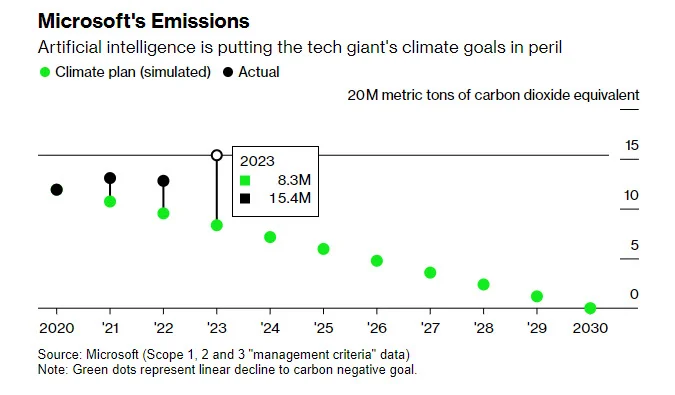Not everything is rosy in the world of the giant Microsoft. While the publisher should have a big week of announcements with the Build conference next week, the current week ends with some bad news…
If the results of the technological giants at the beginning of the year are to be believed, their sky is incredibly blue and the landscape colorful, bathed in record profits and the incredible progress of generative artificial intelligence. This is especially true for Microsoft, which is at the top of the market capitalization.
However, the sky is not as pristine as it seems. A few gray clouds arrived this week to stain the landscape…
Teams: Europe will not give up
Microsoft will try everything to avoid fines for abusing its dominant position around its Teams video conferencing platform and its inclusion in the Office/Microsoft 365 suite.. Late last year, the publisher, knowing it was under investigation in Europe, tried to avoid the wrath of the European Commission by announcing it was withdrawing Teams from its collaboration suite in Europe before generalizing the withdrawal worldwide at the start of the year.
But as we suspected, That decision was far too late and will most likely not prevent Satya Nadella’s company from being fined again. ! The editor is used to it. Europe fined him more than $2 billion, although the publisher has avoided such fines for the past 10 years. AND according to several sources, Brussels will unveil new antitrust charges against Microsoft in connection with the dominant position of the teams. According to the Financial Times, the European Commission is bringing formal charges, alleging that the software giant hindered its competitors by abusing its dominant position in the world of collaboration platforms. For European officials, the concessions offered by Microsoft do not sufficiently address issues of market fairness and come far too late.
Microsoft faces fines of up to 10% of its global annual revenue if found guilty of breaching EU competition law. And maybe this is just the beginning because the European Commission is also investigating Microsoft’s Cloud licensing practices with Azure.
Microsoft could relocate hundreds of Chinese employees
Microsoft has a strong presence in AI research and development in China, including a renowned laboratory in Beijing, which has employed about 200 people for more than 26 years, and to which we owe the famous but disastrous Tay experiment.
But the publisher is also concerned about the Chinese government’s desire to replace all American technologies with local innovations and possible new American regulations that would ban the export of AI technologies to China.
Faced with these risks, Microsoft plans to relocate “700 to 800 people” working in its artificial intelligence labs in China, according to the Wall Street Journal. These experts have recently been offered relocation to the United States, Ireland, Australia and New Zealand.
Microsoft’s carbon emissions are falling
Despite the great speeches and goodwill, each passing year seems to move the company a little further from its 2030 carbon neutrality goal. Microsoft has announced a 29.1% increase in its carbon dioxide emissions compared to 2020, mainly due to the construction and provision of new data centers to meet the growing demand for cloud and artificial intelligence services.
And the problem still lies in indirect Scope 3 emissions. According to the company’s 2024 Environmental Sustainability Report, these Scope 3 emissions represent more than 96% of Microsoft’s total emissions. And it is not the reduction of “only” 6% of own emissions (Scope 1 and 2) that risks changing the situation.
Let us remind you that in 2024, Microsoft will invest over 50 billion dollars in the research and development of artificial intelligence and the expansion of its data centers on a global level.

Blame it on AI and Cloud…
The company remains committed to reducing its environmental impact by requiring its suppliers to use carbon-free electricity and by optimizing water and energy consumption in its data centers. Like Google, Microsoft claims its data centers are now “100% powered” by renewable energy. But, like Google, this figure is fictitious because it was partly obtained by buying renewable energy credits (RECs). which obscure the true extent of Microsoft’s emissions. According to Bloomberg, about half of their energy consumption is claimed through RECs. However, Microsoft’s electricity consumption in 2023 was competitive with that of a small European country, such as Slovenia.
As long as Microsoft continues its expansion of data centers internationally (the rate of which is expected to triple in the first half of 2025), it will have a very difficult time matching its “green” ambitions with reality. And it’s hard to see how the cloud war and AI race will allow Microsoft, but also Google, AWS, Apple and others to keep their “2030” commitments, which already seemed overambitious even before the arrival of ChatGPT !
In short, despite its incredible track record and ability to adapt, Microsoft will have to tread carefully in the coming months to prevent these gray clouds gathering on the horizon from turning into a storm.
READ ALSO:

READ ALSO:

